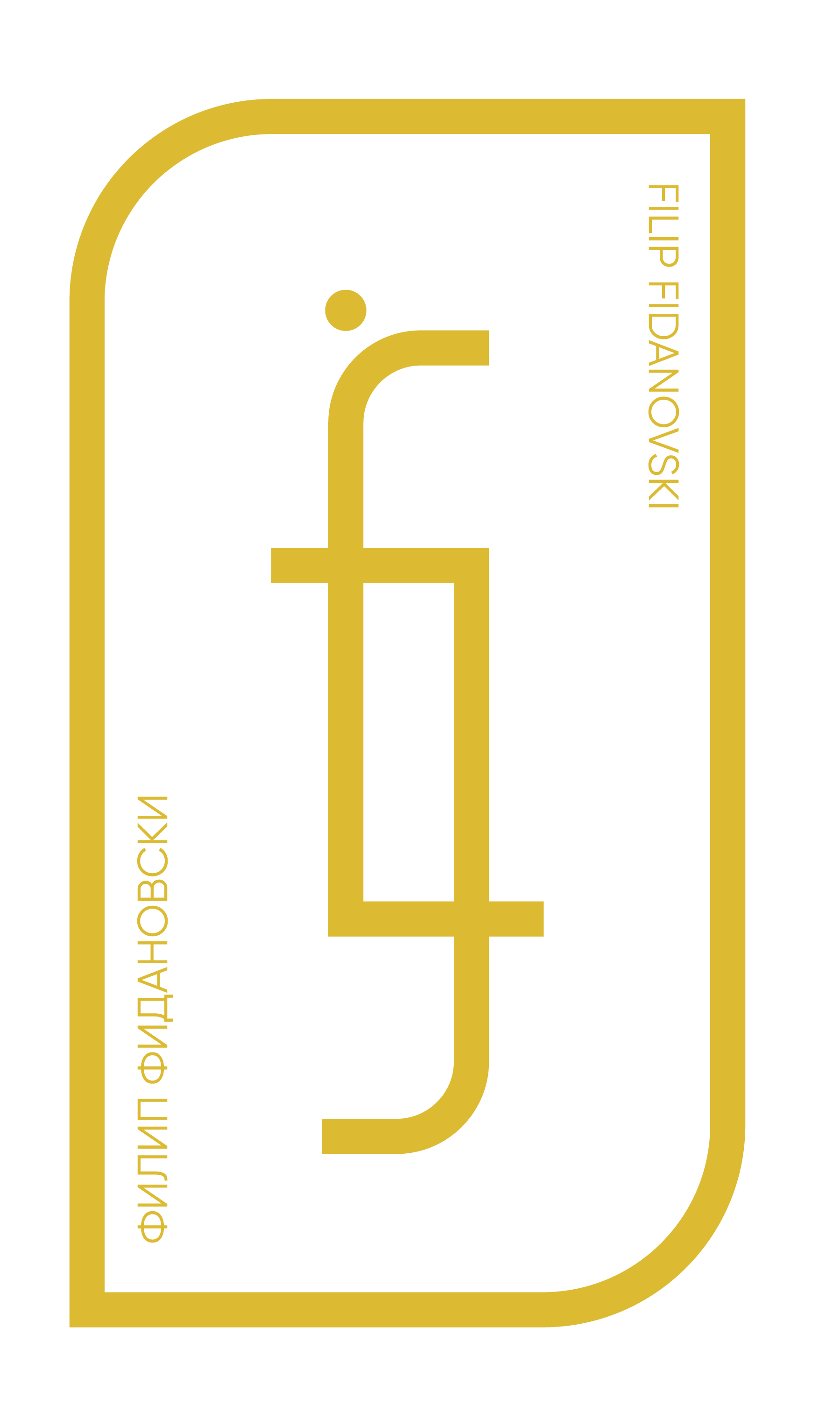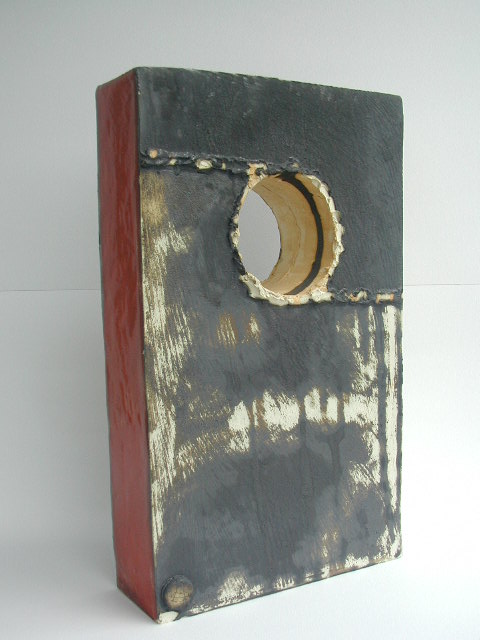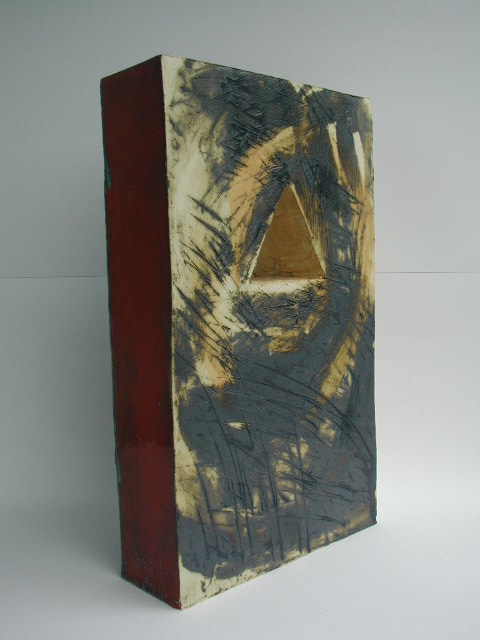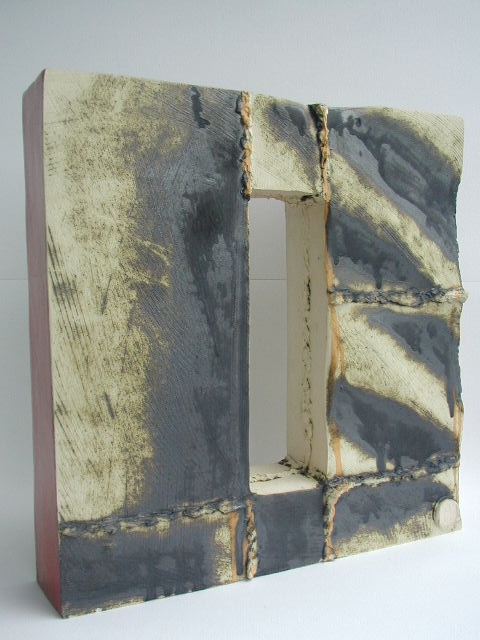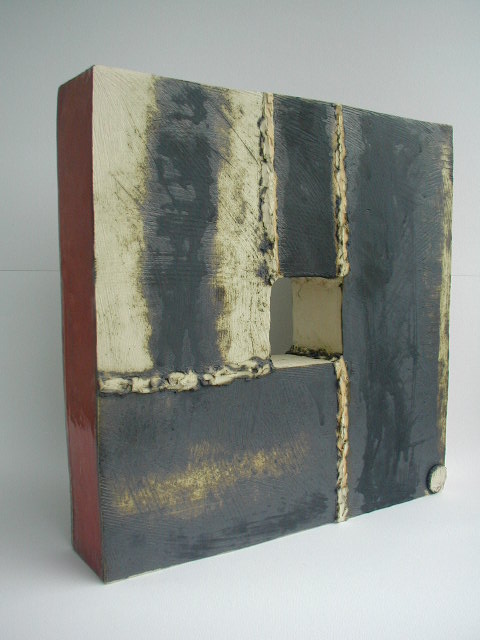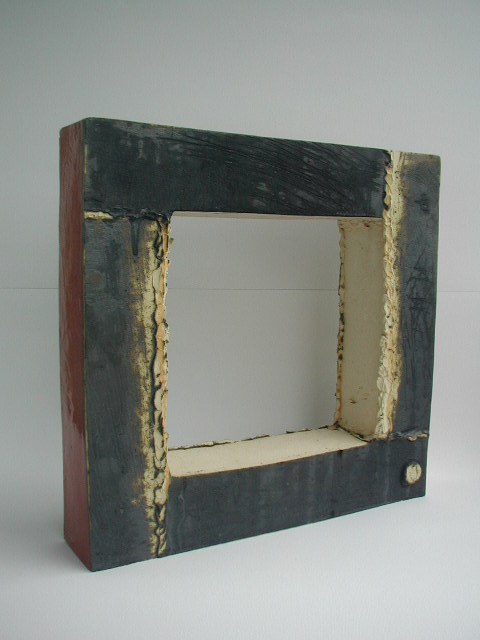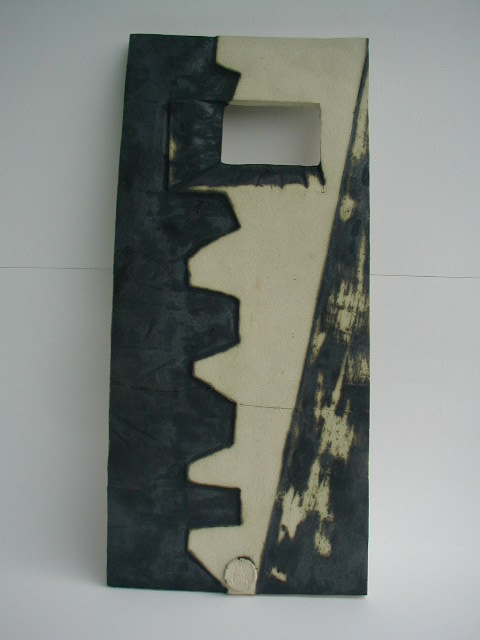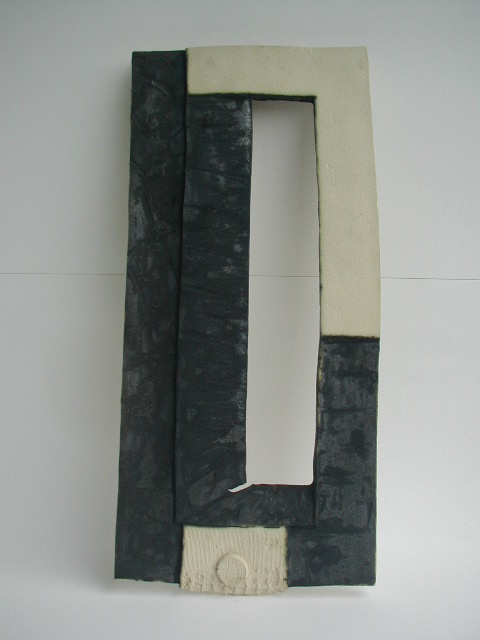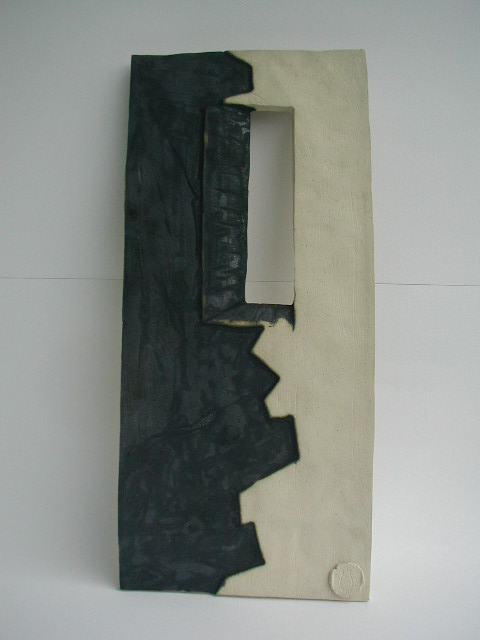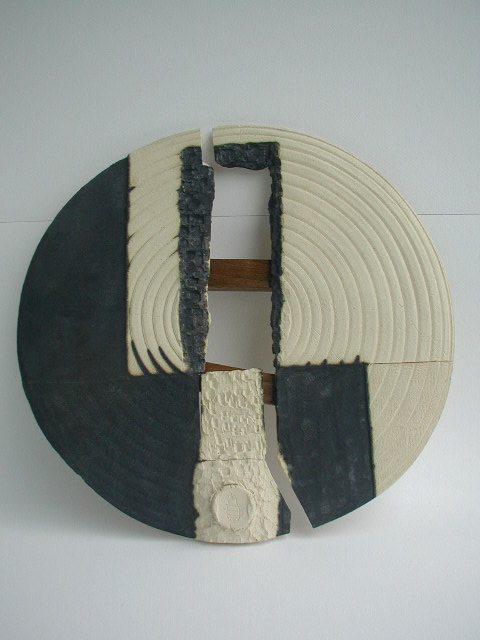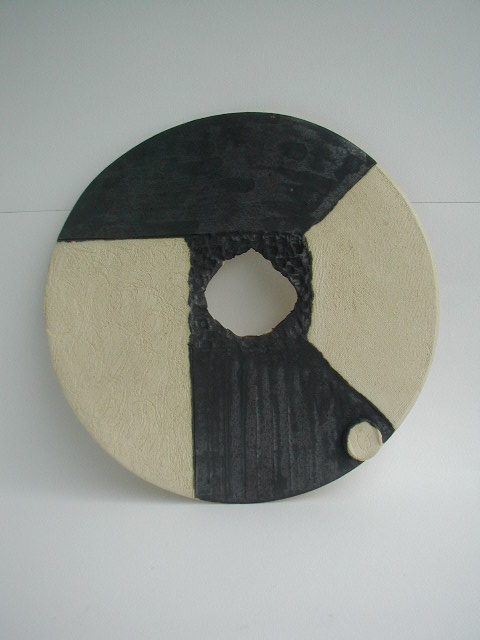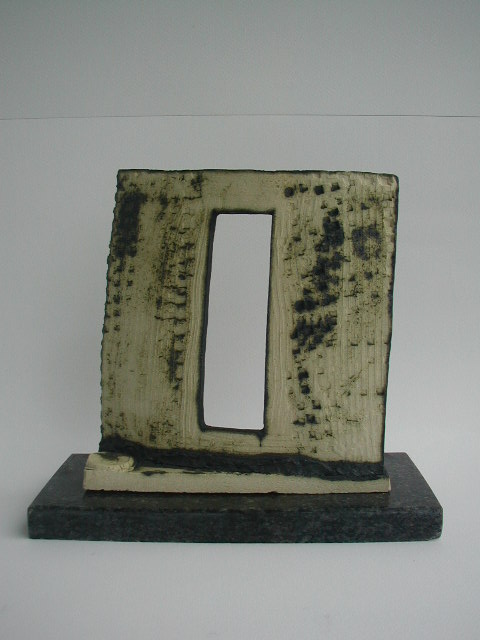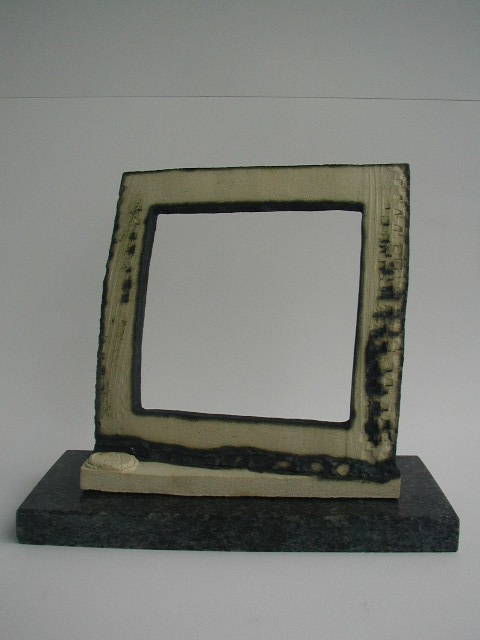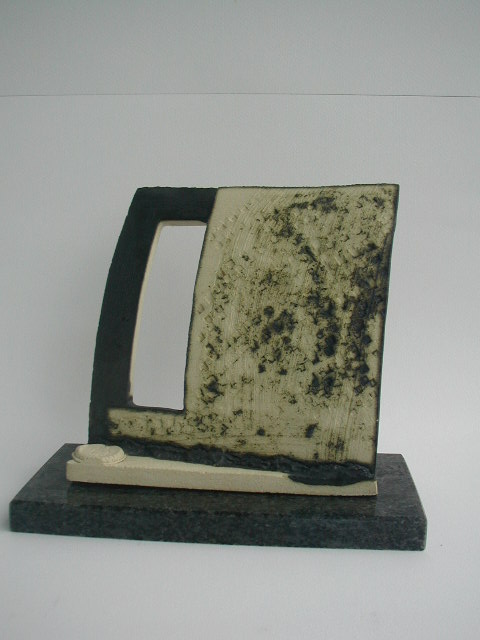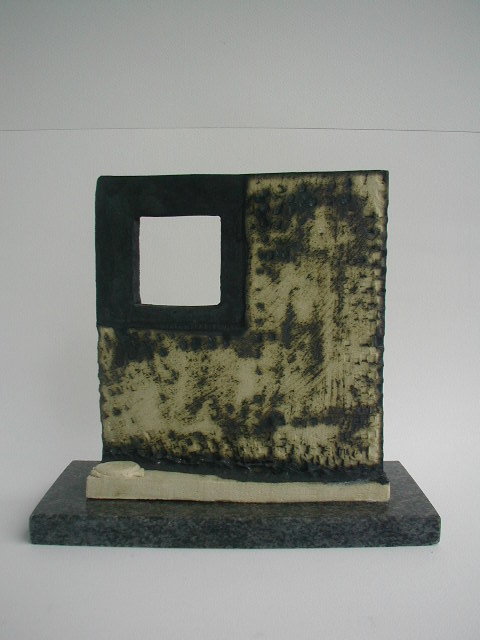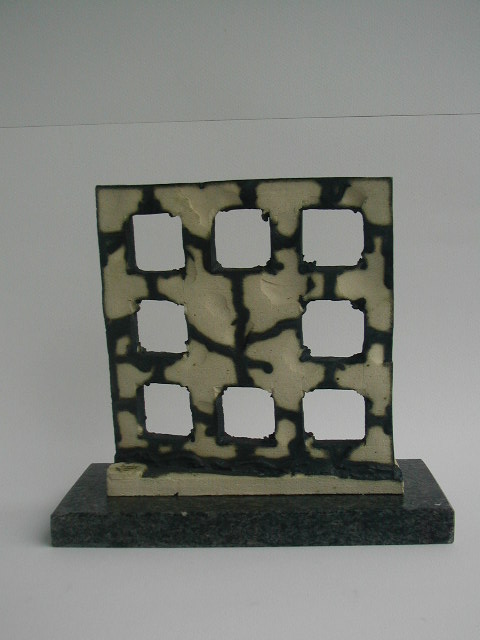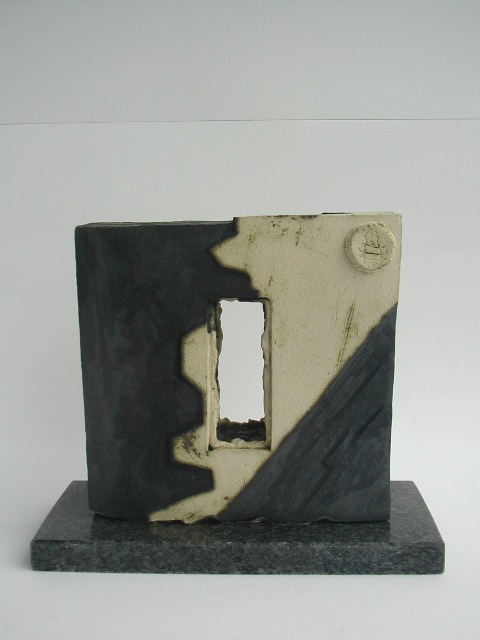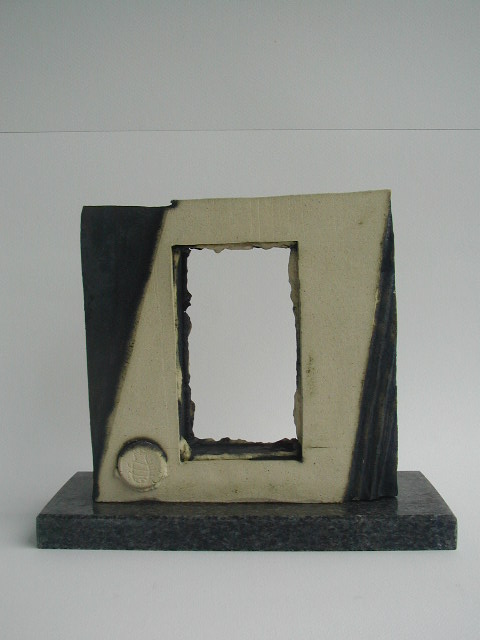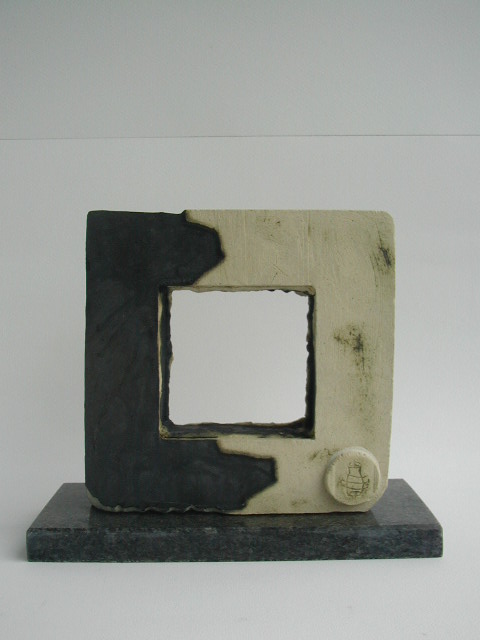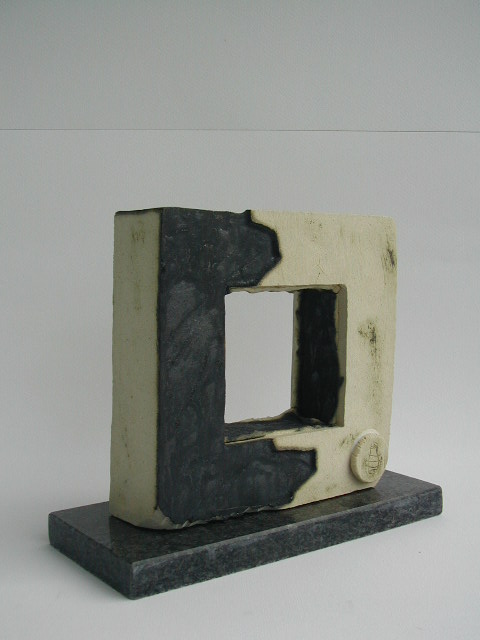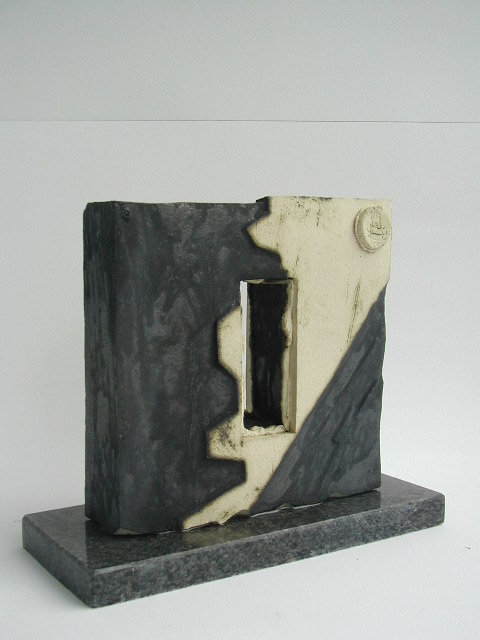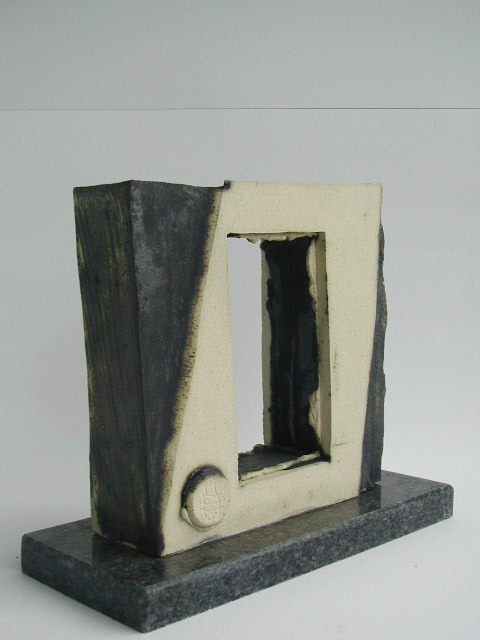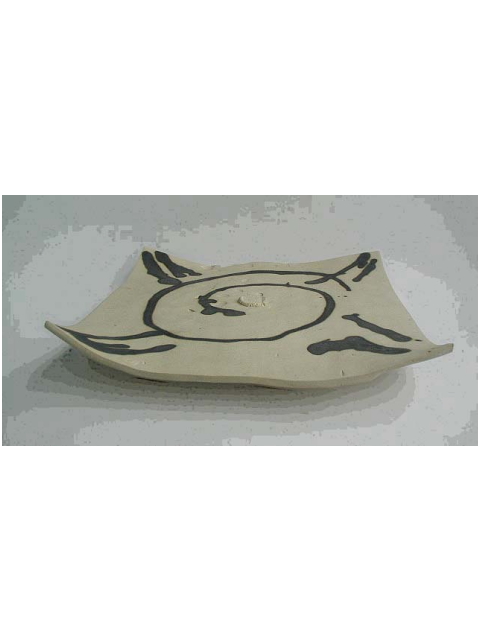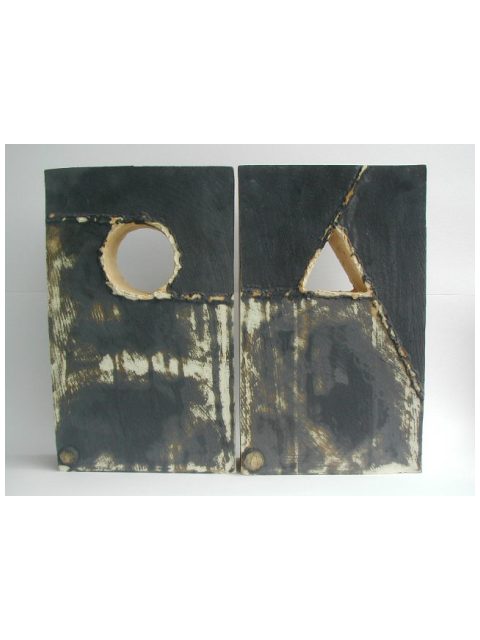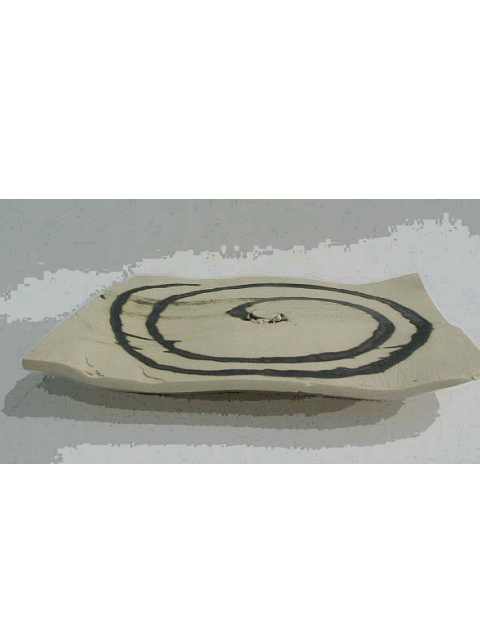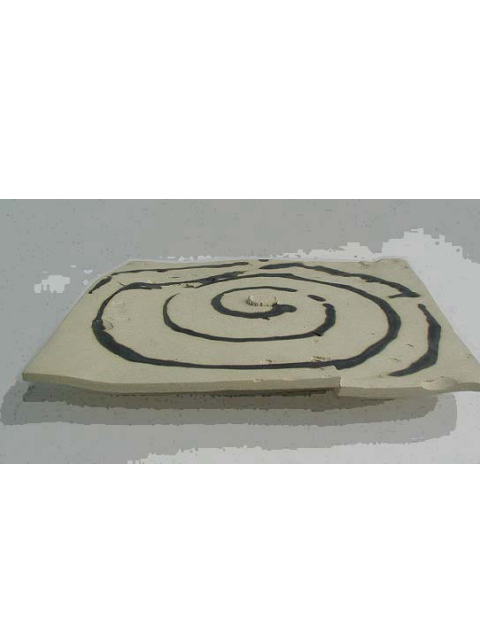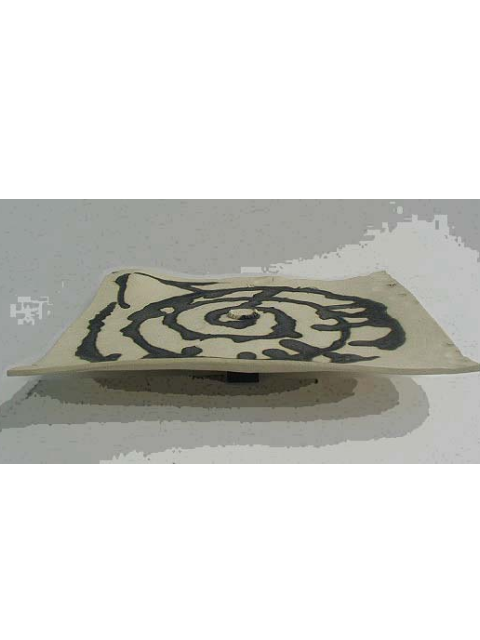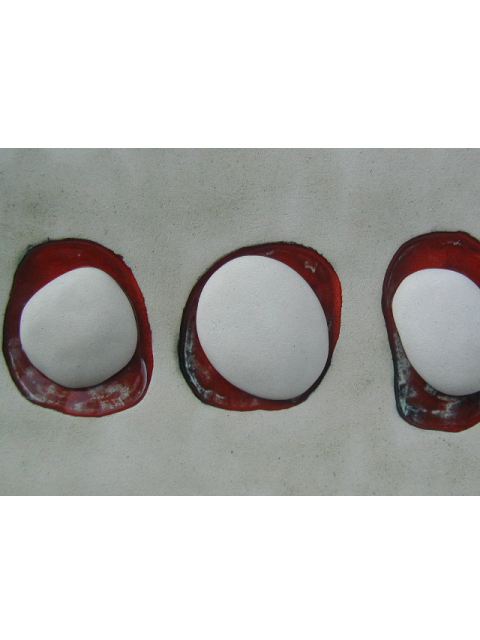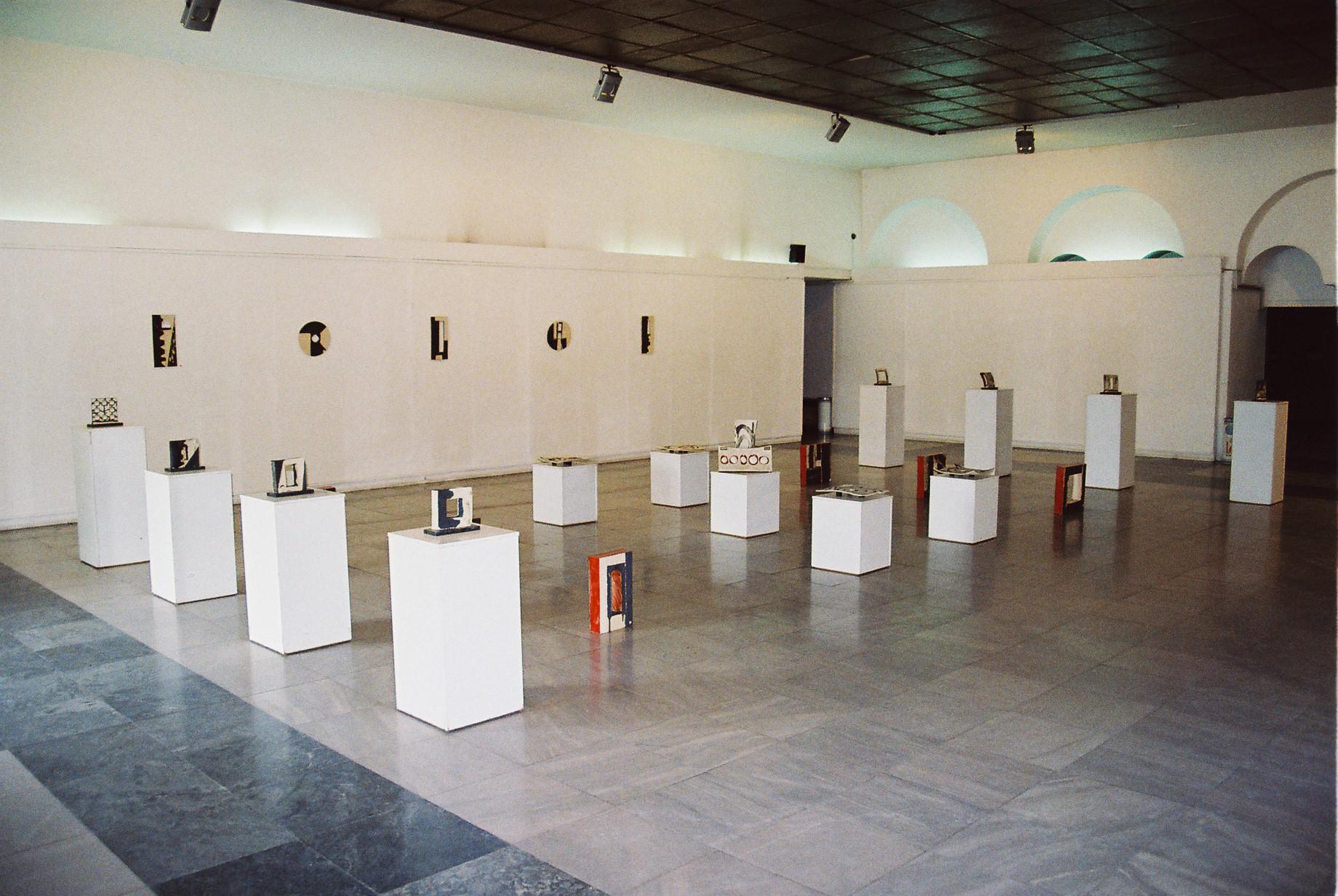
The distance between the nostrils is like the Sahara, limitless and inaccessible. Alberto Giacometti The window stands as a border, a cut-off point between what is outside and what is inside. Like the frame of a painting, the relationship and conflict are created at this point, life begins here.
These are Filip Fidanovski's Windows. Regardless of whether it is a matter of three dimensional segments or a play with perspective, these windows are from one world. The conflict is not created only at the level of volume, it is strengthened at the very surface: the white stoneware is a contrast, transforming itself, becoming grey with copper oxide. Thus, a network of relations opens up in front of us, like a coordinate system; such is one of the ceramic pieces where the eight small windows, which remind us of an urban building, construct an organic network. We recognise a window-screen or a tower-window. However, what leaves us wondering is which side of the window we are on.
Are we hidden in our room, peeping out towards the world, or is the world trying to disturb us through a small opening? Some of the ceramic pieces, with their rough, worked surface with greyish spots, recall a tense world, corroded by drabness, no matter whether it is inside or outside. Although cold and cramped, the Windows seem to emphasise the struggle that leads to the very border, within the flatness of the frame, within ourselves, and between us and the other.
This is particularly emphasised in the ceramic pieces with a geometrical contrast of black and white, and small incisions that create a perspective, and recall the windows of traditional architecture. The author is categorical: “The plates are also windows.” Unlike the other ceramic pieces, where the space of touch is free and empty and there is only a frame, the plates are a portal where, contact is established though abstract decoration. With his associative ceramoplastics, Fidanovski succeeds in uniting several states: inner perception, therapy by photographic observation of windows and a moment of discussion with the other.
Drasko Kostovski
